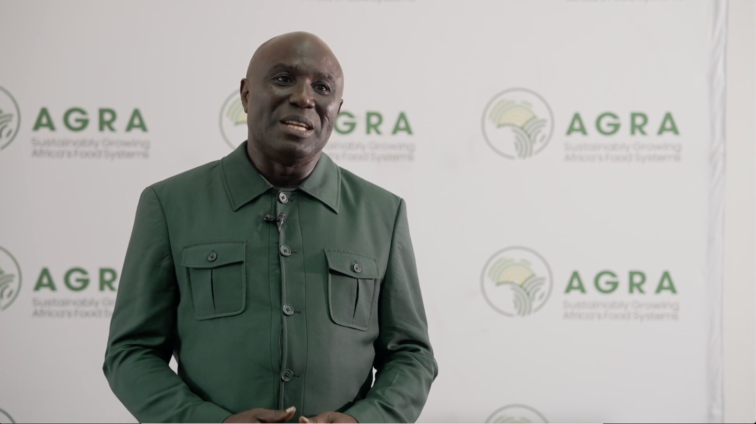The transformation of Africa’s agriculture hinges on partnerships and collaboration among diverse stakeholders who can unite to tackle the challenges within the sector, according to a leading expert.
Foster Boateng of Ghana’s Tree Crop Development Authority said joint efforts from the government, private sector, farmers, and development partners hold the future of the sector which is key for sound food systems.
“You know; agriculture is very diverse, and you need many players in the system. You need government commitment, you need the private sector, the farmers themselves and the development partners as well,” Boateng said.
“So, it’s a concerted effort that requires partnerships,” he said, adding that government commitment is required to leverage private investment and improve the economy.
Mr. Boateng is attending the Africa Food Systems Forum (AGRF) 2023 which is taking place at Julius Nyerere International Convention Centre, in Daresalaam, Tanzania.
“That’s why I see AGRF and AGRA support in addressing African food systems in a more comprehensive manner and partnership as the right way to go,” he said.
He appreciated the AGRA programme known as Consortium Approach which brought smallholder farmers together and linked them to market leaders.
That way, the farmers can get inputs, and extension services as well as access markets and financing.
“For me, that’s the best way to go,” Boateng noted.
He said Ghana has also been facilitating the formation of farmers’ groups and linking them to market leaders so that they can comply with the quality standards that the markets require.
“The market does not begin with harvesting the produce but rather with the choice of crop varieties that the market is looking for,” Mr. Boateng said.
“As part of the value chain and supporting the market system, you also need to build a kind of seed system possessing the genetic traits and characteristics that the market demands,” he explained.
On addressing climate change, Mr. Boateng stated that the role of agroforestry farming which Ghana is adopting.
Ghana has been relying on cocoa for about a century now, but climate change and other human activities have degraded the environment so much that certain areas can no longer grow the produce.
The Government of Ghana is now exploring alternative value chains which will generate revenue.
In the tree crop area, Ghana is developing six crops that are projected to bring in a total of $12 billion in the next seven to 10 years.
These crops include mango, cashew, coconut, rubber, shea, and oil palm.
Agroforestry farming is also expected to enable farmers to manage shocks caused by climate change by increasing soil fertility and carbon management.
Latest Stories
-
Managing Prediabetes with the Help of a Dietitian
6 mins -
Joy FM listeners criticise Achiase Commanding Officer’s election comment
27 mins -
Legal Aid Commission employees threaten strike over poor working conditions
29 mins -
Ghana ranked 7th globally as biggest beneficiary of World Bank funding
39 mins -
IMF board to disburse $360m to Ghana in December after third review
43 mins -
Former Bono Regional NPP organiser donates 13 motorbikes to 12 constituencies
49 mins -
Securities industry: Assets under management estimated at GH¢81.7bn in quarter 3, 2024
54 mins -
Gold Fields Ghana Foundation challenges graduates to maximise benefits of community apprenticeship programme
2 hours -
GBC accuses Deputy Information Minister Sylvester Tetteh of demolishing its bungalow illegally
3 hours -
Boost for education as government commissions 80 projects
3 hours -
NAPO commissions library to honour Atta-Mills’ memory
3 hours -
OmniBSIC Bank champions health and wellness with thriving community walk
3 hours -
Kora Wearables unveils Neo: The Ultimate Smartwatch for Ghana’s tech-savvy and health-conscious users
3 hours -
NDC supports Dampare’s ‘no guns at polling stations’ directive
3 hours -
Police officer interdicted after video of assault goes viral
3 hours

